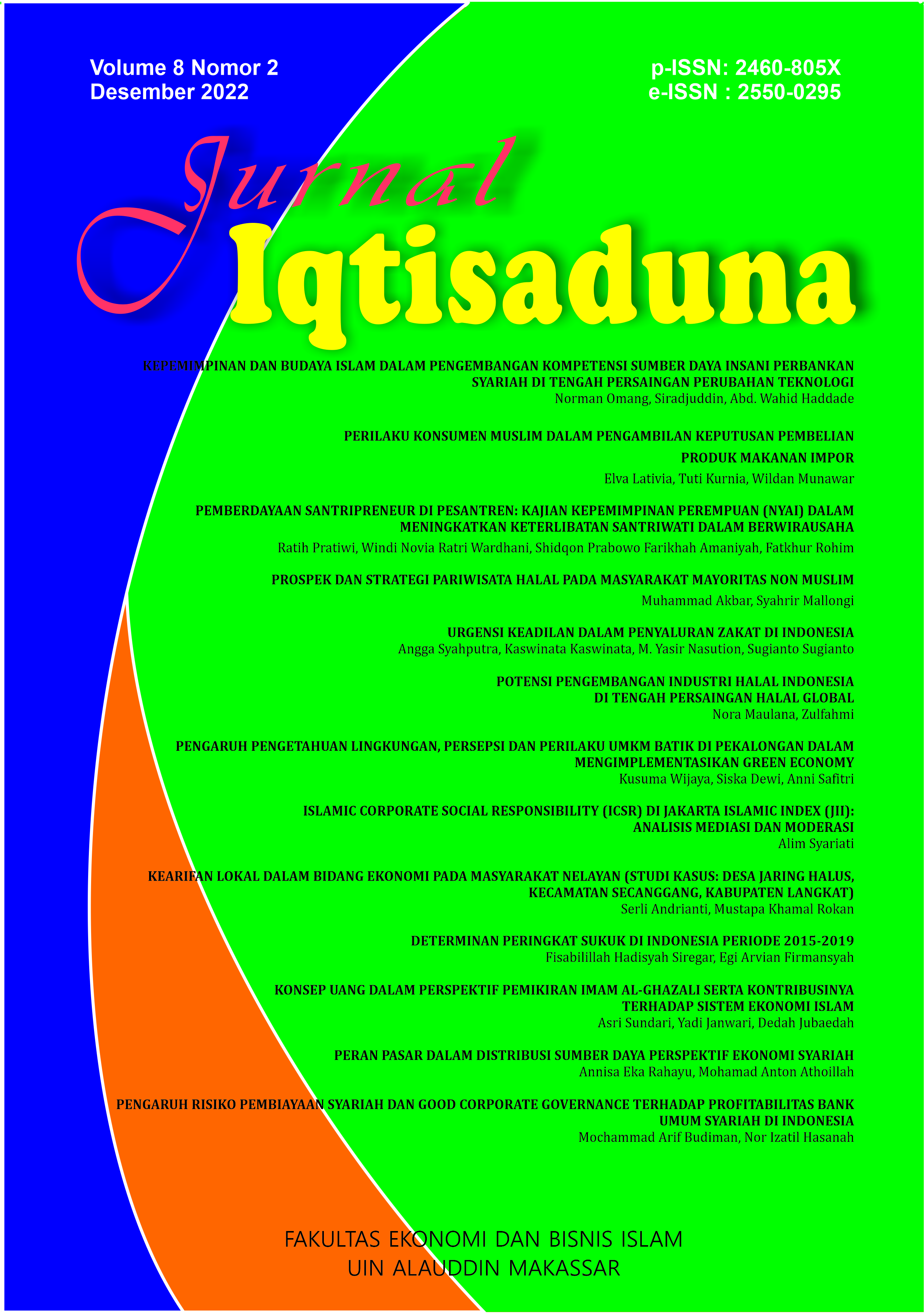Potensi Pengembangan Industri Halal Indonesia di Tengah Persaingan Halal Global
Abstract
The outbreak of the global halal industry trend has become a crucial issue that is important to be discussed by sharia economic activists, because halal is not only meeting the needs and compliance of muslim with sharia but is also one of the priority standards recognized by the world. The purpose of this study is to comprehensively describe Indonesia’s position in the halal industry sector, so that the research results can be used as a reference in setting policies for the government and stakeholders in developing the halal industry in Indonesia. The research is a descriptive qualitative research using normative theological and phenomenological approaches, with secondary data sources obtained through books, journals, articles, report data, and various relevant scientific sources. The result of the study show that the role of the halal industry in Indonesia is very large, not only in the food and beverage sector, but the halal industry has expanded to include the Islamic finance sector, muslim fashion, cosmetics, pharmaceuticals, travel, hotels, tourism, media and flim recreation. Indonesia has great potential to develop the halal industry besides Indonesia as the country with the largest muslim population in the world, Indonesia also has large consumption value in the halal sector, the existence of legal regulations, the establishment of KNEKS, the synergy of stakeholders, the existence of BPJPH and various other potentials that support the development of the halal industry in Indonesia that is globally competitive.
Downloads
References
Hafiz Zulfakara, M., Anuar, M. M., & Syazwan, M. (2014). Conceptual Framework on Halal Food Supply Chain Integrity Enhancement. Procedia, Social and Behavioral Sciences, Vol. 121, 58–67.
Indonesiabaik.id. (2021). Siapkah Kamu Jadi Generasi Emas 2045. 2021. https://indonesiabaik.id/infografis/siapkah-kamu-jadi-generasi-emas-2045
KNKS. (2020). Strategi Nasional Pengembangan Industri Halal Indonesia.
Nasution, L. Z. (2020). Penguatan Industri Halal bagi Daya Saing Wilayah: Tantangan dan Agenda Kebijakan. Journal of Regional Economics Indonesia, Vol. 1, No, 33–57.
Negeri, D. J. K. dan P. S. (Dukcapil) K. D. (2022). Persentase Pemeluk Agama di Indonesia. 31 Desember 2021. https://databoks.katadata.co.id/datapublish/2022/02/12/sebanyak-8693-penduduk-indonesia-beragama-islam-pada-31-desember-2021
Sukoso, Wiryawan, A., Kusnadi, J., & Sucipto. (2020). Ekosistem Industri Halal. Bank Indonesia.
Ulya, F. N. (2022, September). Hingga 2022, 10.643 UMK Dapat Sertifikasi Halal LPPOM MUI. 06 September 2022. https://money.kompas.com/read/2022/06/09/120110426/hingga-2022-10643-umk-dapat-sertifikasi-halal-lppom-mui?page=all

